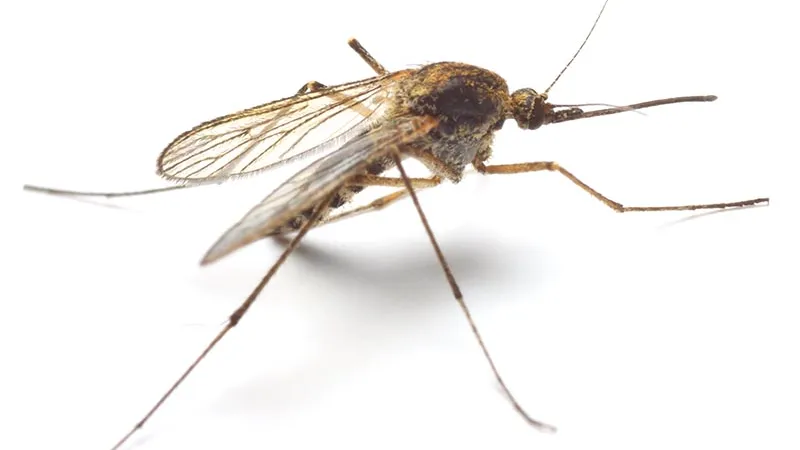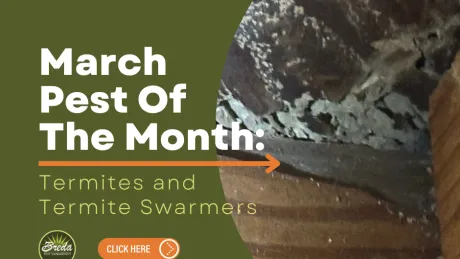
Anopheles Mosquito

Anopheles Mosquito Information
More about Anopheles mosquitoes
Anopheles mosquitoes are among the most common species in the United States, including Georgia. They are easily recognizable by their unique resting position - they hold their bodies at an angle to the surface they're on rather than parallel like most other mosquitoes. Their wings are speckled with dark spots and have long palpi (sensory appendages) about the same length as their proboscis (the mouthpart used to bite).
Anopheles mosquitoes tend to be most active during twilight hours and throughout the night, making evening outdoor activities a prime time for potential bites. They are attracted to the carbon dioxide trails left from human exhalation, sweat chemicals, and specific clothing colors that retain heat.
Their preferred breeding grounds are areas with clean, unpolluted water, such as marshes, wetlands, and slow-moving bodies of water. However, they can lay eggs in any standing source of fresh water, including garden ponds, bird baths, and even rain-filled buckets.
The life cycle of Anopheles mosquitoes involves four stages: egg, larva, pupa, and adult. The first three stages are aquatic and require water. Female mosquitoes lay their eggs on the surface of standing water, where they hatch into larvae. These larvae feed on organic matter in the water and grow until they pupate. After a brief resting period in the pupal stage, they emerge as adult mosquitoes ready to feed.
The female Anopheles mosquito requires a blood meal to produce eggs, so only female mosquitoes bite. They use their beak to pierce the skin and draw blood.
Anopheles mosquitoes are notorious for their role in transmitting malaria. Anopheles mosquito can pick up the malaria parasite when it bites an infected person. The parasite develops within the mosquito and can be transferred to other humans when the mosquito feeds again.
Controlling Anopheles mosquito populations is crucial in areas where malaria is prevalent. However, even in regions where malaria is less common, such as Georgia, containing their numbers is crucial for general comfort and well-being.
If you're looking for a reliable way to repel mosquitoes, Breda Pest Management has got you covered. Our treatments are uniquely designed to target every phase of the mosquito's life cycle, using Insect Growth Regulators to prevent them from reaching maturity and reproducing. This guarantees long-lasting relief from mosquito infestations for both commercial and residential properties.


